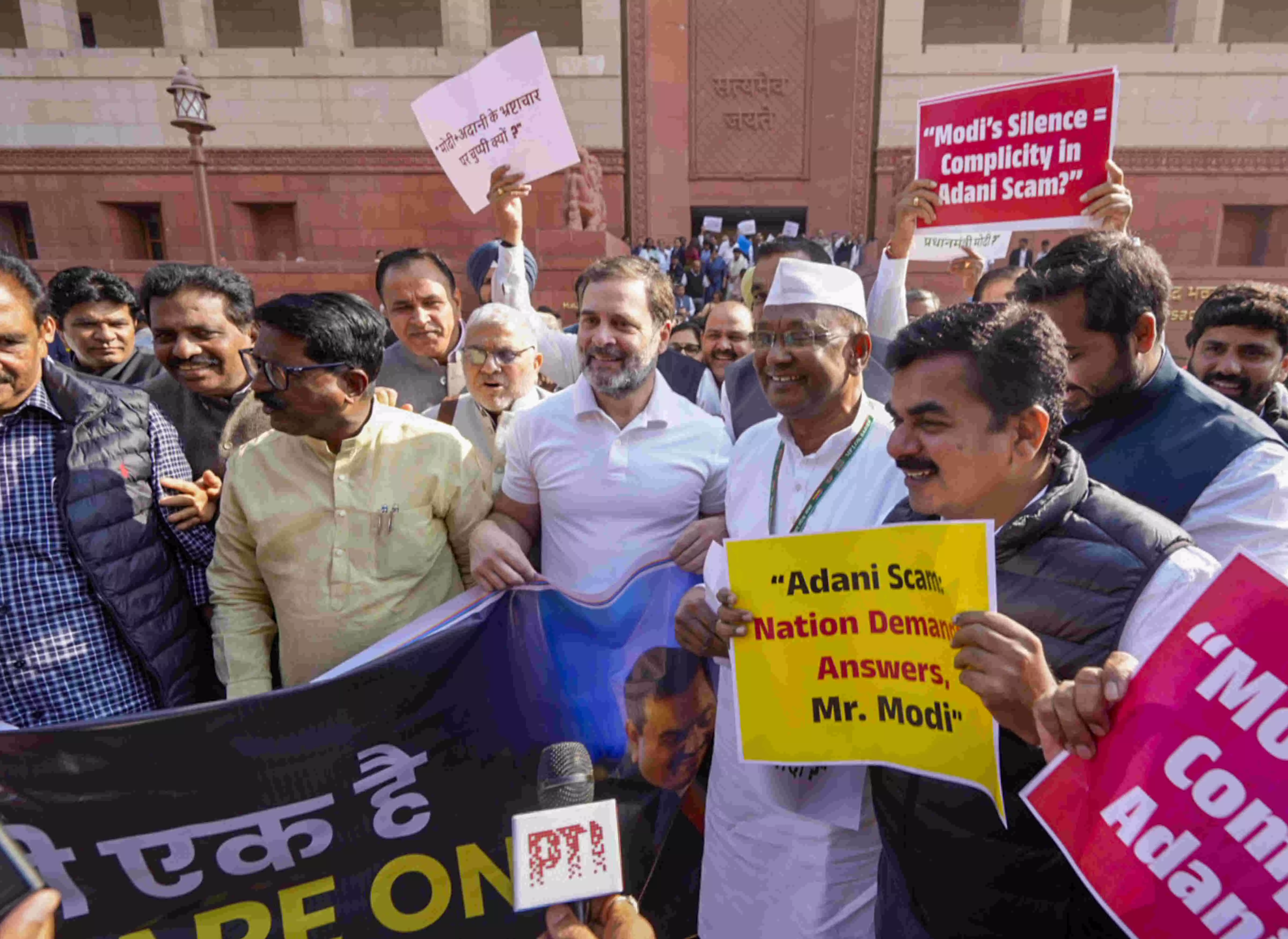Persistent disruptions

India’s Parliament has long served as the cornerstone of the nation’s democracy. However, in the current scenario, it has increasingly become a battleground for political showdowns rather than a platform for meaningful dialogue. The winter session’s prolonged disruptions, over issues like the Adani indictment, Sambhal violence, and the Manipur unrest, have once again exposed a troubling trend that has marred Indian democracy over the last several years. A temporary truce, with both the government and the Opposition agreeing to a special discussion on the Constitution, had brought some relief on Monday, but the signs of sorrowness were visible on Tuesday as well. Furthermore, the larger issue of dysfunctional proceedings remains unaddressed in the longer run. The repeated stalling of Parliament reflects poorly on both the ruling party and the Opposition. The government’s reluctance to address contentious issues and the Opposition’s strategy of persistent disruptions have created a despicable cycle of deadlock. This impasse not only delays important legislative work but also undermines public trust in the country’s democratic institutions.
Interestingly, the focus of the Opposition, particularly the Congress, on the Adani issue has sparked debates within the combined India block. Some parties in the bloc supported the demand for discussions on corporate accountability, others, like the Trinamool Congress and the Samajwadi Party, have rather opted for routine discussions on pressing issues like unemployment and inflation, alongside the simmering Manipur crisis. These differences have exposed potential cracks in the alliance, giving the perception of a weakened collective impact. Such disunity has only strengthened the government’s position, which has dismissed the Opposition’s concerns as fragmented and opportunistic.
On the other hand of the spectrum, the government has its own share of blame to bear. Its alleged tendency to sidestep debates on sensitive matters adds to the gridlock. The government’s reassurances of smooth functioning and due discussions do little to address the root causes of parliamentary dysfunction. A ruling party with a clear majority has an added responsibility to create an environment of dialogue, however uncomfortable the topic is. Ignoring or deflecting such debates deepens public cynicism and erodes the accountability that democracy so desperately demands.
It is very important to note that the disruptions in parliament and ensuing blame game come at a considerable cost. Parliamentary time is valuable. Its waste affects not just the passing of key legislations but also the credibility of lawmakers. At the same time, it is also a reckless waste of public money. The tax-paying people who elect representatives expect their voices to be heard and their concerns addressed. Instead, what they often see is political theatre that prioritises point-scoring over problem-solving.
There’s a way out of this persistent crisis, but it requires effort and intent from both sides. The government must show greater willingness to engage with the Opposition on contentious issues, recognizing that debate is central to democracy. Meanwhile, the Opposition needs to rethink its strategy. Disruptions can draw attention to issues, but overdoing them alienates the public and weakens their case. A united and constructive approach can help them make a stronger impact. At its best, Parliament should be a space for the free exchange of ideas, where disagreements are debated, and solutions are found out. The current state of affairs, however, suggests that both the government and the Opposition need to recalibrate their priorities. The focus should not be on winning the argument but on serving the people who put them in those seats. Restoring the dignity and functionality of Parliament is a democratic necessity.



